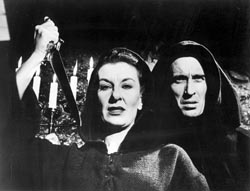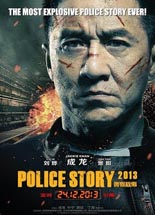
 Entry No. 7 in Hong Kong cinema’s unrelated Police Story franchise (if we count Michelle Yeoh’s Supercop 2 spin-off), Police Story: Lockdown again stars Jackie Chan, this time as Capt. Zhong, a middle-aged career cop and now a widower. He meets his emo-medical daughter, Miao (Jing Tian, Special ID), at a trendy, two-story nightclub complete with private rooms, go-go girls and frickin’ live piranha.
Entry No. 7 in Hong Kong cinema’s unrelated Police Story franchise (if we count Michelle Yeoh’s Supercop 2 spin-off), Police Story: Lockdown again stars Jackie Chan, this time as Capt. Zhong, a middle-aged career cop and now a widower. He meets his emo-medical daughter, Miao (Jing Tian, Special ID), at a trendy, two-story nightclub complete with private rooms, go-go girls and frickin’ live piranha.
Resentful of her workaholic father’s years of absenteeism, Miao nonetheless makes an effort to reconnect, starting with introducing him to her new beau, Wu (Liu Ye, The Chef, the Actor and the Scoundrel), formerly a pugilist in an illegal boxing ring, currently owner of this very hot spot. Zhong immediately dislikes Wu and … well, father knows best, because Wu takes his whole bar hostage, plopping all patrons who weren’t able to flee during the melée into the dancing cages. (No word if such dual use was in mind when Wu designed the club, but the cages certainly came in handy, no?)
 As villains go, Wu is pretty cardboard — or maybe candy glass is more apt here — and as heroes go, Chan is Jackie Chan, the ever-reliable, brand-name action star. From Little Big Soldier director Ding Sheng, Lockdown is middling fare at best — nowhere near Chan’s peak (which includes a handful of the Police Story stories), but equally distant from his more-recent nadir. It is what it is, which means that while the film is limited by its (mostly) single location, it’s worth tuning in just to watch the fight sequences (and usually the bloopers, although that’s not the case here). The 60-something Chan isn’t quite as fast on his feet these days, but like Fred Astaire or Gene Kelly, he’s never going to lose all those moves. Aging suits him well, even when the scripts fall short. —Rod Lott
As villains go, Wu is pretty cardboard — or maybe candy glass is more apt here — and as heroes go, Chan is Jackie Chan, the ever-reliable, brand-name action star. From Little Big Soldier director Ding Sheng, Lockdown is middling fare at best — nowhere near Chan’s peak (which includes a handful of the Police Story stories), but equally distant from his more-recent nadir. It is what it is, which means that while the film is limited by its (mostly) single location, it’s worth tuning in just to watch the fight sequences (and usually the bloopers, although that’s not the case here). The 60-something Chan isn’t quite as fast on his feet these days, but like Fred Astaire or Gene Kelly, he’s never going to lose all those moves. Aging suits him well, even when the scripts fall short. —Rod Lott

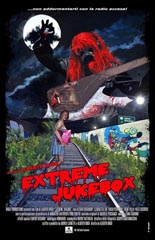
 Look at a jukebox — if you can find a pub or pizza parlor that still has one — and peruse its tunes. Among those 45s, you’re likely to find a mix of musical genres from which the automated arm can pluck: rock, pop, country. Fittingly but annoyingly,
Look at a jukebox — if you can find a pub or pizza parlor that still has one — and peruse its tunes. Among those 45s, you’re likely to find a mix of musical genres from which the automated arm can pluck: rock, pop, country. Fittingly but annoyingly, 
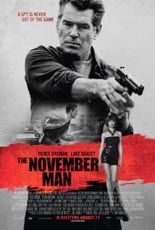


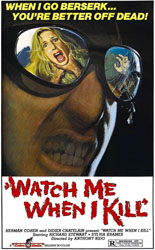
 In
In 
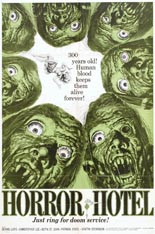
 When is not a good idea for a comely college co-ed (Nan Barlow,
When is not a good idea for a comely college co-ed (Nan Barlow, 